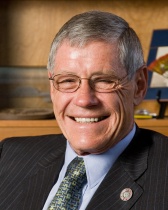By Todd Cohen, Director of Sustainability Initiatives, American Association of Community Colleges
(This article appears in the November, 2010 issue of The ACUPCC Implementer)
To lead in the accelerating green economy, America needs millions of new skilled workers for jobs in renewable energy, energy efficiency, green building and sustainability. To meet this demand, America’s community colleges are joining the first nationwide initiative to collaborate on and implement programs to train students with the education and skills needed to succeed.
The SEED Center (www.theSEEDcenter.org) is a leadership initiative, free resource center, and online sharing environment for community colleges to dramatically scale up programs to educate America’s 21st century workforce to compete in the green economy. Designed to support various AASHE and Second Nature tools, SEED – Sustainability Education and Economic Development – is a landmark effort by the American Association of Community Colleges (AACC) and ecoAmerica to assist the nation’s 1,200 two-year colleges in the critical task of preparing the American workforce with the skills needed to succeed in sustainable, clean tech and other green economy jobs.
Read more

![DC logo.red[2]](http://secondnaturebos.files.wordpress.com/2010/09/dc-logo-red2.jpg?w=180&h=180)






